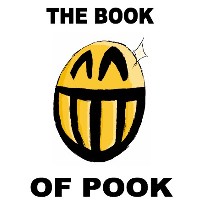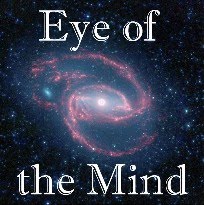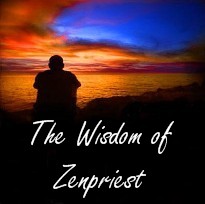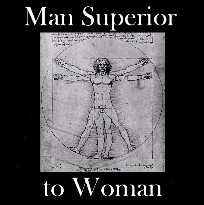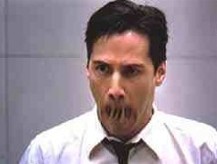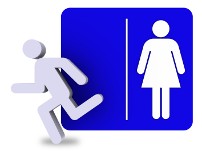I want, in this essay, to sketch out the synthesis of ideas that I expect will be the foundation for my life's work. Last month I began to write a book on this subject, and I don't expect to be able to deal adequately with the scope of these ideas in less than a book. Nevertheless, I want to try here to plant some seeds, to share my thinking in this abbreviated form, so that others can begin to think about and dialogue on these ideas.
My personal resistance to these conclusions has been profound. I have fought against them, like a fish on a hook, for almost two years, because I don't want them to be true. The very best result that I can imagine would be that someone would show me the error in my analysis, and that my conclusions are mistaken. I hope for that, but I do not expect it. It feels like time to stop resisting and to follow the path in front of me.
Introduction
I will argue that the feminine archetype is now dominant in the western world, and that, most dangerously, we are virtually blind to the shadow side of this archetype. As a result, while we are vigilant against masculine forms of evil, feminine evil is taking over our culture, and feminism is the leading and driving ideology of this process. This situation has its roots in our childraising practice in the last fifty years, and is closely analagous to the historical rise of Nazism in Germany. The resulting human misery and destruction is already massive, and seems likely to exceed that of WWII. However, the eventual result will be that we take women off the pedestal, recognize their capacity for evil as we already have for men, and move finally into real gender maturity and equality.
Masculine and Feminine Archetypes
There is some confusion about archetypes. In King, Warrior, Magician, Lover, Moore and Gillette define them as "instinctual patterns and energy configurations, probably inherited genetically through the generations of our species," and which "provide the very foundations of our behaviours." 1 I like to think of archetypes in terms of a metaphor. I imagine that the psychic world of Jung's collective unconscious is like a jungle, where paths have been trod by people's behaviour since the beginning of time. Those paths that many people have walked throughout history (e.g., mother, father, warrior, woodcutter, etc.) have been made wide by the passage of many feet, and efficient by those creative minds who blazed shortcuts that others chose to follow. Such paths are psychically easy to walk, compared to the difficulty of cutting a new path through the jungle or of following one seldom-used and overgrown. These paths are archetypes, typical psychological ways of being, and they have an energy that resists stepping off the path. This metaphor matches Carl Jung's description when he says, "There are as many archetypes as there are typical situations in life. Endless repetition has engraved these experiences into our psychic constitution, not in the form of images filled with content, but at first only as forms without content, representing only the possibility of a certain kind of perception or action." 2 (emphasis in original)
Two fundamental archetypes are the masculine and the feminine; together they divide up the whole psychological realm into complementary pairs of opposites. They are groups of psychological behaviours that have commonly and stereotypically been associated with males and females throughout history. Note that individual men and women can and do display varying degrees of masculinity and femininityÑthese archetypes are not equivalent to being male or female.
The archetypal masculine and feminine are what is known as polar opposites. Jung explained that all psychic life is governed by a necessary opposition, and that this opposition is inherent in human nature. For, he said, "the psyche is ... a self-regulating system," and "there is no balance, no system of self-regulation, without opposition." "Everything human is relative, because everything rests on the inner polarity; for everything is a phenomonon of energy. Energy necessarily depends on a pre-existing polarity, without which there could be no energy. There must always be high and low, hot and cold, etc., so that the equilibrating process--which is energy--can take place." 3
A few examples of such complementary opposite pairs of behaviours are given below:
Masculine Feminine
Competitive Cooperative Hierarchical Consensual Overt Covert Direct Indirect Intellectual Emotional Physical Psychological Objective Subjective Physically coercive Deceptive
It is important to realize that since each pair of complementary opposites consists of different active or evaluative approaches to a situation, they cannot be employed simultaneously, but rather represent alternative strategies or choices. Which strategy will be best cannot be determined in general, but depends entirely on the situation. Human psychological wholeness or maturity can be conceived of as becoming competent in the use of all such strategies. However, we naturally tend to prefer and overuse those strategies with which we are familiar as individuals or cultures, and most of us, due to reinforcement and conditioning in childhood, and probably to genetic predisposition as well, embrace first that set of behaviours and attitudes culturally appropriate for our gender. Boys tend to absorb and manifest those behaviours and attitudes described above as masculine, and girls to value and embrace the complementary feminine set. One consequence of that, of course, is that men and women are pychologically drawn to each other. The opposites attract because we unconsciously seek out what we lack.
Note that neither the masculine nor the feminine archetype is either dominant or derivative: both are equal in power and value (although our individual and cultural value systems generally rank one above the other). This equality is inherent in the dualistic nature of all polar opposites: like day and night, up and down, good and bad, they create and define each other. Also, any particular strategy, masculine or feminine, can be used for good or ill, to help or to harm: none are good or bad in essence, but only in application and intention. However, again, we tend as individuals and as cultures to group them into categories of right and wrong, good and bad; categories which vary widely from one area to another, and which change--sometimes rapidly--from age to age.
My final point about archetypes is their power to move whole populations in ways of which they are unaware. Jung, who formulated the concept, said that, }... from within the realm of the subjective psyche, ... the archetype presents itself as numinous, that is, it appears as an experience of fundamental importance. Whenever it clothes itself with adequate symbols, ... it takes hold of the individual in a startling way, creating a condition of 'being deeply moved', the consequences of which may be immeasurable." 4 And James Hillman: "... one thing is absolutely essential to the notion of archetypes: their emotional possessive effect, their bedazzlement of consciousness so that it becomes blind to its own stance. By setting up a universe which tends to hold everything we do, see and say in the sway of its cosmos, an archetype is best comparable with a god." 5
The New Theory of Psychohistory
In his groundbreaking book Foundations of Psychohistory, Lloyd deMause says, "It is not often recognised that psychohistory is the only new social science to be founded in the twentieth century--sociology, psychology and anthropology all having broken away from philosophy in the nineteenth century. ... [This] 'psychogenic theory of history' ... can be summarised as the theory that history involves the acting out by adults of group fantasies which are based on motivations initially produced by the evolution of childhood. ... The theory states that it is not 'economic class' nor 'social class' but 'psychoclass'--shared childrearing modes--that is the real basis for understanding motivation in history." 6
I have been approaching this conclusion for several years, driven by the realization that 'culture' or 'social beliefs' must be derivative rather than prime causes. But if so, what causes culture, what determines the nature of our group beliefs and motivations and hence, historical actions? Sociology's only answer is 'prior culture'--an infinite regress of causation. The answer is obvious, once you see it. Culture is an artifact of group psychology. And group psychology, like individual psychology, is a consequence primarily of childhood experience. It was wonderfully affirming for me when I discovered, just last month, that the science of psychohistory, well developed if not well known, explains history in terms of the acting out of group psychology with its roots in childhood experience.
A central thesis of this essay is that the dominant psychosocial theme of the twentieth century has been the evolution of our psyches beyond traditional, one-sided masculinity and femininity towards individual and cultural wholeness. Group psychology, like individual psychology, follows this path by emphasizing first one pole, one archetype, and then the other. During such times of extreme cultural gender polarization, our fear of change means that we are unwilling to move on to the next stage until the pain and distress of our archetypal one-sidedness has grown to massive proportions. Let's start our examination of this pattern by looking at the psychohistorical gender roots of Nazism.
German Childraising Practice
My first hint that there might be gender roots to Nazism came when I read Alice Miller's magnificent For Your Own Good: Hidden cruelty in child-rearing and the roots of violence. She writes, "On the basis of available documents, we can easily gain an impression of the atmosphere in which Adolf Hitler grew up. The family structure could well be characterized as the prototype of a totalitarian regime. Its sole, undisputed, often brutal ruler is the father. The wife and children are totally subservient to his will, his moods and his whims; they must accept humiliation and injustice unquestioningly and gratefully. Obedience is their primary rule of conduct." 7 But was this the general pattern throughout Germany? I asked this question of Lloyd deMause, author of Foundations of Psychohistory. He replied, 'German childrearing was horrific at the end of the 19th century, with tight swaddling for a full year, high infanticide rates, enormous neglect during infancy, battering ..., authoritarianism, moving children around and abandoning them, overcontrol, etc. I can show French, British and American childrearing was much in advance of German. So the early traumatic childrearing is all there, though widely denied by most historians." Alice Miller adds an interesting note about Jewish culture: "... Jewish fathers in Eastern Europe were not trained to be harsh and brutal. They were not forced, like German fathers, to suppress their soft, helpless side from childhood on." 8
German childrearing practice was, in the decades around 1900, almost universally autocratic, with authority focused in the father and brutally enforced with strict physical punishment and extreme lack of empathy for the feelings of the child. The father's decisions were beyond reproach: any complaint was cause for further punishment. Archetypally, this is hypermasculine: any trace of feminine qualities such as empathy or affection is seen as weakness. If such a childhood is universal within a culture so that children never see or experience an alternative, then most idealize it, embrace their parents' view that the abuse they received was deserved and appropriate. They grow up with a particular kind of hole in their psyches, a hole that I call the father wound. The father wound consists of an inability to recognize masculine forms of abuse, and a need to find ways to repeat such abuse in their own lives, but with themselves in the controlling position, as the perpetrators. (The most common form of this, of course, is parents repeating the patterns of abuse with their own children, but this time with themselves in the role of the powerful and righteous one). Where a psychic wound is ubiquitous in a culture, as it was in Germany in the first half of this century, the stage is set for an abusive political ideology to capture the nation, provided that it exactly matches the forms of the original childhood experience.
This, more than any external conditions, is the ground from which Nazism grew in Germany. Consider how well the political ideology matched the original childhood abuse. Nazism was autocratic, rigidly hierarchical, and brutal, with a total lack of empathy or compassion toward human suffering. It embraced Aryan Germans as the 'master race' (allowing most Germans to see themselves as the ones in control), allowed no complaint or criticism against it, and righteously, brutally punished all dissent. It was led by a hypermasculine father figure seen as all-knowing and infallible, who ruled with absolute authority and to whom all deferred, but who presented himself as being, and was believed to be, dedicated to the welfare of those he ruled. In every way, Nazism matched and repeated the major forms and patterns of German childrearing.
A personality or an ideology that emerges from the dark side of a gender archetype always exaggerates the features of the gender it is emphasizing, and fears and rigorously defends against the strengths of the other archetypal pole. An example of this is offered by Jungian analyst Lawrence Jaffe: "The Nazis were great enemies of feeling, though friendly to inferior feeling, better known as sentimentality. (Goering, murderer of thousands, wept inconsolably when his pet canary died.) The Nazis made a sport of placing themselves in situations which would naturally elicit feeling, only to then deliberatedly withhold it. The one who exhibited the least feeling would be accounted the winner. We may fairly assume that Hitler himself unconsciously equated his inner feeling side, his shadow, with Jewishness, and experienced it as a threat to his masculine strength and purposiveness." 9
When hypermasculine military aggression was added to the legendary German scientific and bureaucratic efficiency, Nazism became the purest example of the dark side of the masculine archetype in ideological form in modern times. Germany became a culture possessed by archetypal masculine evil.
Evil Ideology Defined
Evil is a powerful word, and I use it here only after long and careful consideration. In recent years, with the general decay of religious convictions in the west, we have become confused about evil. Indeed, modern New Age and secular humanistic thinking is that evil has no existence, is all 'shadow projection'. I once shared this notion, but I have now concluded that such thinking is dangerously naive. Scott Peck wrote in The Road Less Travelled, "... I have to conclude that evil is real. It is not the figment of the imagination of a primitive religious mind feebly attempting to explain the unknown. There really are people, and institutions made up of people, who respond with hatred in the presence of goodness and would destroy the good insofar as it is in their power to do so. They do this not with conscious malice, but blindly, lacking awareness of their own evilÑindeed, seeking to avoid any such awareness." 10 And from Alice Miller, "The Jungian notion of the shadow, and the notion that evil is the reverse of good, are aimed at denying the reality of evil. But evil is real. It is not innate but acquired, and it is never the reverse of good, but rather its destroyer. ... When one day the ignorance arising from childhood repression is eliminated and humanity has awakened, an end can be put to this production of evil." 11
What is evil? The simplest answer is that evil is anti-life. If, as Jung claimed, the purpose of life and the deepest human desire is to develop ourselves fully, to become all that we can be, then evil strives to reverse this process, to regress towards infantilism. To assist in the practical recognition of evil, I offer my own definition, which has three necessary components. Evil is: 1. The desire for unearned consumption or privilege, plus; 2. The coercion or deception of others in order to achieve it, and; 3. The insistent rationalization of such behaviour as moral and righteous.
Although not explicit in the definition, all the cruelty and brutal destruction that we associate with evil are built on this foundation.
Enjoying unearned consumption or privilege is essentially the role of an infant or child. A child is unique before the law in enjoying rights without responsibilities, whereas adulthood is the state of being a net producer, consuming and producing--in legal terms, of having rights and responsibilities. Traditionally, and archetypically, men's responsibility/production has been physical, economic and political. Exerting themselves against the entropic forces of decay and randomness, they have created order and organization, resulting in food on the table and laws in the land. Women's responsibility/production area has been moral and emotional. In their relationships with their families, especially their children, their emotional exertion returns comfort for pain, peace for anger, security for fear. The quality and sustainability of any society is based entirely on the level of production in these areas: physical/economic/political and moral/emotional. In a healthy society, individuals and institutions trade their production for that of others in conscious, non-coercive, non-deceptive contracts. Traditional marriage is the basic example of this trade, where the man's external production of food and shelter is traded for the woman's 'internal' production of the moral and emotional development of children and domestic relationship harmony.
If some are to enjoy unearned consumption, others must produce more or consume less. Where this is not offered willingly, as it is to children and welfare recipients, for example, some will seek to take it by force or deception. An example is burglary. However, burglars are not evil unless they meet the third criteria, and attempt to justify their actions to themselves and to others as morally righteous. It is this last feature of evil that makes it so pernicious, for the attack on reason can be utterly confusing, and make the destructive nature of evil actions extremely hard to recognize.
An evil ideology contains within its formal arguments such a disguised attack on reason, in the form of purported moral justifications for unearned privilege (for the favoured group) extracted coercively from others. In the case of Nazism, these others were the Jews, whose property was confiscated, and the surrounding nations, whose lands were regarded as forfeit to the German need for 'lebensraum' (living space), whose peoples were enslaved (coerced production without consumption rights) and whose property was seized, all by force and justified by self-serving moral arguments.
Evil is ever amongst us. However, those unique circumstances when, because of ubiquitous childrearing modes in a particular place and time, an evil ideology captures an entire nation or culture, give rise to suffering and destruction on a massive scale. Such, I conclude, is what happened in Nazi Germany--and World War II and the Holocaust were the result. I believe that something very similar is taking shape today, in the case of feminism and the culture of the western world.
The Feminine Archetype
Idealized Something deeply significant happened after WWII. The world was already reeling from the experience of two World Wars and the Great Depression in the space of a single generation. When the excesses of Nazism were exposed at Nuremberg, when the atom bombs were dropped on Japan, the world recoiled in horror. But what we recoiled from was our own nature. Male institutions and male government were seen as flawed and dangerous. At an archetypal level, we decided as a whole culture that masculinity was suspect, and we took men 'off the pedestal'. As a consequence, because of the oppositional nature of masculine and feminine archetypes, women were established even more strongly on the pedestal. (One result of this is that our image of the mature, ideal or enlightened person is now archetypically feminine in nature: non-aggressive, cooperative rather than competitive, gentle, nurturing, sensitive.) In practice, we began to idealize women and to demonize men. Where there were major problems in the family or the world, we anticipated that they would have male causes and that women would be found to be innocent victims. In fact, we became resistant to any other finding. The focus of moral authority in the family shifted to the mother, since fathers, as males, were ashamed and suspect. In an interview with Bert Hoff, Robert Johnson (author of the books He, She and We about masculine and feminine archetypes) said, "[Women] are stepping into [power] roles as men are retreating and becoming wimpish. I grew up in a family like that. My mother ruled, and my father said 'yes'. That's very common--almost a stereotype for post-World War II marriages." 12 Which is not to say that masculine forms of child abuse ceased, just as feminine forms of abuse certainly weren't absent in father-dominated German families. Rather, the mother became the parent who effectively wielded 'the power that mattered'.
But feminine archetypal power takes different forms than masculine. Where a father's authority is usually overt and direct, that of a mother is more commonly covert and indirect. For example, a mother saying to a child, "YouÕve been so bad, just wait till your father gets home" maintains the appearance of the father being the one who is in charge, when it is clear that it is actually the mother who is judge and jury, and will probably set the sentence. Where a father's discipline is physical and intellectual (e.g., a spanking or a reasoned explanation why something is wrong), a mother's is typically psychological and emotional (e.g., "If it wasn't for you I wouldn't be stuck in this dump" or "you've made me cry"). And, most fundamentally, where the masculine archetype coerces through force and the creation of fear, the feminine archetype coerces through deception and the creation of shame.
This change in our perceptions of men and women has had some huge benefits. For the first time ever, we have publicly recognized and acknowledged child abuse by men. And wife abuse. All forms of archetypally maculine abusiveness, in fact. Because of this new cultural awareness of male forms of violence (i.e., overt sexual or physical abuse), victims of these abuses gain the opportunity to work through and heal these wounds in therapy, in self-help groups, in workshops, in women's shelters and with friends. They may write about their experiences and their recovery. The strong cultural support for the victim, the conviction that abuse is never the child's fault, enables progress against the powerful tendency to repress and avoid such painful feelings.
Because of this, we no longer have a ubiquitous father wound in our psyches. There is no possibility that an evil masculine ideology like Nazism could take over our culture, for its abusiveness and hypocrisy would be quickly recognized. We are no longer idealizing men and in denial about masculine forms of evil. However, we are still in deep denial of feminine evil. In the last fifty years, the feminine forms of child abuse have remained unrecognized. And as long as abuse is unrecognized, it cannot be healed. Today, we have a ubiquitous mother wound.
We gained this wound because our mothers, idealized in modern culture (since now we believed men were responsible for the evil in the world), abused us in feminine ways without our recognizing it as abuse. And with feminine forms of abuse unrecognized, there was no stigma or consequence to mothers for such abuse. Indeed, like the German fathers, they believed that their words and actions were good parenting. And, just as German mothers feared to stand up to the physically abusive fathers, so modern fathers are ashamed to stand up to psychologically abusive mothers. The damage to the soul of the child remains unrecognized. And, with no public consciousness of the destructiveness of such forms of abuse, there is little possibility for large numbers of people to recover as adults. Our mother wound today remains massive, universal, and unhealed.
What is this feminine abuse? It is the separation of the child from his or her trust in their own mind, their own feelings. It is the substitution of the mother's self-serving, subjective determination of right and wrong, of guilt and innocence, for a repeatable, objective standard. It is the crushing of natural emotional expression in the child because such expression is felt by the mother to be distasteful, distressing or inconvenient. As always in abuse, it is the exercise of coercive power in the interest of the exerciser, in this case the mother, and against the interest of the child. It is a form of what Anne Miller calls "poisonous pedagogy". She writes, "Since training in many cultures begins in infancy during the initial symbiotic relationship between mother and child, this early conditioning makes it virtually impossible for the child to discover what is actually happening to him. The child's dependence on his or her parents' love also makes it impossible in later years to recognize these traumatizations, which often remain hidden behind the early idealization of the parents for the rest of the child's life." 13
Archetypal feminine abuses are indirect (exercised through others such as the father or siblings), psychological or emotional ("you should be ashamed of yourself", or "stop your crying at once"), covert (often communicated by no more than a glance that says, "You're such a disappointment"), manipulative (you can't understand because you're not a woman/not an adult/etc.), and psychologically rather than physically incestuous ("let me tell you what your father is really like"). Such behaviour is seen as adequate parenting, not ideal perhaps, but not really harmful. Nowhere is it a criminal offense, as are the masculine forms of child abuse. Yet, I argue that it is at least as damaging as are the masculine abuses with which we are familiar, but that the wounds it produces are different. Fundamentally, it is built on the use of shame to control behaviour (as opposed to the dark masculine which uses fear for the same purpose). Where fear attacks the will, shame kills the soul. In her book Shame: Spiritual Suicide, Vicki Underland Rosow says that shame is systemic in our western culture, and gives examples of its use in religion, politics, education, helping professions, and science.
So we, in the West, because of our childrearing practice, possess a massive, ubiquitous, archetypally feminine wound in our psyches, of which we are unconscious, and which I call the mother wound. According to this thesis, then, we are ripe for the appearance of an evil feminine ideology to exploit this wound. This ideology is already among us, and its name is feminism.
Feminism
Firstly, it is important to say to what I refer with the name feminism. A standard defense against any criticism of feminism is that it is no one thing, but many shades of beliefs and affiliations, such as liberal feminism, socialist or marxist feminism, radical feminism, ecofeminism, etc. Of course these branches exist, but this is irrelevant. Any ideology is identified by its basic tenets, which remain unchanged across all its variations, since it is they that unite the varieties under the one banner. In the case of feminism, all branches share the same basic belief that history has been a story of general oppression of women by men. Indeed, this is acknowledged by feminists as the essential, defining principle, for example, by Alison M. Jaggar and Paula Rothenberg Struhl in their book Feminist Frameworks, where they say, "... the conservative view of womenÕs situation in society is not feminist, because it denies that women are oppressed." 14
Further, I want to be very clear that it is not my intention, nor would I consider it valid, to indict feminism based on the words or actions of any radical elements or 'lunatic fringe'. Only the consistent messages of its major, acknowledged spokespersons and the major policies that it has pursued will be used here to build a case. My focus is on modern, mainstream feminism, which for brevity I will refer to simply as feminism. And, while my research indicates that the same phenomenon is operating throughout the Western world, I will confine my examples to North American feminism, since this is the area that I know best.
Feminism is an Evil Ideology
If feminism is indeed an ideology which is exploiting a ubiquitous 'mother wound', then the forms it has taken will exactly match and repeat the feminine forms of child abuse, just as Nazism matched the German masculine mode. Is this the case? It is non-hierarchical: indeed, feminists make much of their peer-level, consensual processes, and there are no national or international 'heads' or chiefs of the feminist movement. Similarly, it is indirect, in that nowhere is there an overtly feminist legislature, university, law court or military, or even a female one. Rather, feminism exerts its power indirectly, having those in positions of power do its bidding without needing itself to hold those positions in order to achieve its aims. In this it operates exactly like the mother in post-war families, where the father's authority seems to be intact, yet it is the mother's will that rules.
Feminism is subjective rather than objective, driven by women's feelings about what is right--which exactly reflects the way that mothers decided what was right in modern families. In issues of law, where objectivity and repeatability are vital, feminism has successfully argued that any unwelcome or hostile feeling in a woman is to be regarded as establishing sexual harassment. And modern anti-stalking legislation discards hard-won fundamental freedoms such as equality before the law, the presumption of innocence, and rights to freedom of association and to property (for men) in order to ensure that "no one [is made to] feel afraid and unsafe in their own home or community" 15 (emphasis added). Extensive feminist writing on gender equality is simply rationalizations of women's feelings of inequality, for when analyzed carefully, modern feminist arguments always reveal themselves to be built not on objective gender equality but on female superiority. Even feminist philosophy, now founded in post-modern constructivism, standpoint theory and "women's ways of knowing", is essentially subjective.
Like post-war mothers, feminism portrays itself as the virtuous victim struggling to correct male injustices. Requests for change are never presented as simply, "Let's work together to achieve this goal ...", but always as grievances, as arguments that women are owed more money, more power, more rights, more ... consumption of society's production. The argument is always moral in nature, always filled with angst and outrage, and always favours women. Feminists do not mention the many ways that women enjoy gender advantage over men--except to deny their reality or their import--because they never feel any disadvantage but their own.
Finally, and most importantly, feminism gets its way through the inculcation of shame. Here is the lever, the engine of modern social control: a lever that can be operated only by or on behalf of women. For, when we were tiny, it was our mothers who convinced us that we were unworthy except when we pleased them, no good unless we had their approval. The deep sense of shame that was planted in the psyches of both boys and girls, that I call the mother wound, now provides the means for feminists to effectively control every area of social power. Male--and female--legislators, judges, academics, managers, all re-experience those intense feelings of shame and unworthiness they felt as children, when angry women say or imply that they are bad. Indeed, their whole lives have been built around reassuring themselves that they are worthy through good works, public accomplishment or financial success. However, none of these external defenses can stand for long against feminist shaming if the inner psyche still carries the mother wound, still gives to Woman the ultimate power to determine its worth.
Just how powerful is shame as a coercive technique? Powerful, wealthy men gave up their lives to save those of women and children on the Titanic in 1912. Why? Because of the shame they would feel as a coward, if they didn't. In wartime, average men will run directly into machine gun fire, knowing they will die a meaningless death, rather than face the shame they would feel if they fled the battle. Shame is the most intense psychological pain we can feel. We usually prefer to die. It's that big.
I have shown, very briefly, that the forms adopted by ideological feminism match those of modern, archetypally feminine child abuse. But does feminism meet the definition of an evil ideology? Let us see.
Firstly, does feminism seek unearned privilege--rights without responsibilities? A major plank of modern feminism from the beginning has been reproductive rights; specifically, a woman's right to abort an unwanted child. Has feminism sought to address the issues of others affected by this right, such as the fetus, the father or society? No, feminists have universally repudiated all responsibility to such others. They demandÑand have receivedÑthe unilateral right to abort an unborn child, or not, as they choose. (Note that this is a brand new right, and not one that men ever had.) In 1969, Betty Friedan said, "Only one voice needs to be heard on the question of whether a woman will or will not bear a child, and that is the voice of the woman herself: her own conscience, her own conscious choice." 16 Fetuses have no rights at all, since, feminists argue, "A woman's body, a woman's choice". This emotive, shaming slogan ignores all the ways that a fetus is unique from all other female body parts--for example that it can grow into a person, that it is the result of a sexual act with a man, and that it can be male or female--in favour of the obscuring argument that it is enclosed in and fed by the woman's body. And so we have the iniquitous situation that the father has no say in whether his offspring lives or dies, is not even required to be notified of the pregnancy, yet is legally obliged to support the child if the woman chooses to keep it--and whether he intended or wishes to be a father or not. And society, again with no say in the woman's choice, yet must foot the bills for welfare moms. Saying to a woman, "If you didn't want a child, you shouldn't have had sex" is met by feminists with howls of outrage and accusations of discrimination--yet this is exactly what those same feminists say to men in the same situation. Clearly, in women's area of traditional responsibility--reproduction--feminism wants no gender equality, but rather has sought and won rights for women and responsibilities for men.
What about in other areas? In men's areas of traditional responsibility, the real equality issues--the right to vote, laws against gender discrimination in employment, in salary, in housing, in access to professional roles--were addressed years ago. Today, all feminist initiatives--every single one--are about giving women rights over men, and men responsibility for women. Thus we have employment equity (affirmative action) for jobs where men predominate, but not for those where women are in the majority. We have ever more punitive enforcement of child support, but no enforcement at all for access by fathers to their children. We have zero tolerance (i.e., arrest the man on the woman's word) against male violence against women based on feminist advocacy studies that model all domestic violence in terms of male oppression of female victims, and deny the reality of women's equal initiation of violence in the home. We have sexual harassment laws addressing the ways that men might abuse women's sexuality in the workplace, but no laws addressing (or even acknowledging) women's use of their sexuality to unfairly advance their careers. We have even defined obscenity, here in Canada, in terms of what harms women! 17
All of these feminist initatives seek women's advantage coercively, which is the second criterion describing an evil ideology. Feminists are not saying to men and to society, "Offer these things where you choose." No, they insist (and have been granted) that these rights be given the coercive force of law. And in doing so, they employ their own, archetypally feminine forms of coercion: deception and shame. Deception appears in the creation and use of false and distorted statistics (such as the many studies showing that women continue to earn less than men, but which ignore differences between men and women in hours worked, years of experience, overtime, credentials and the like, which when factored in account entirely for the differences in apparent earnings). And shame is coercive in a similar way to blackmail, in that the ability of legislators, academics, judges--and voters!--to consider the issues dispassionately and make free, sensible choices is virtually eliminated by their need to avoid their denied but still devastating feelings of shame if they ever see themselves as abusive to women.
In Canada, a feminist initiative of the moment is pay equity. A Human Rights Tribunal has ordered the federal government to pay approximately five billion dollars to (mostly) female government workers, because their work was "undervalued" with respect to that of men. This argument is totally fallacious. Unequal pay for equal work and discrimination in hiring (the real equality issues) have been illegal in North America for years. Any woman who wanted the higher paying 'male' work could have competed for it like the men. The fact is, salaries are set by market demand: where many people desire a particular kind of employment (such as clerical office work), the supply forces salaries down. And that's as it should be, since the price of production then represents the real costs. (Communist Russia went broke trying to make the market serve ideological goals.) What the pay equity advocates really want is the cushy, attractive office work they desire, and the higher salaries of the less desirable (hence higher paid) jobs. They want to be subsidised on the backs of others. They want to increase their consumption without any increase in their production. They want a legal entitlement to it. And they're getting it.
The third aspect of an evil ideology is the maintenance of an image of total and perpetual moral righteousness. Many of the examples already discussed have already made this apparent, so I will confine myself to exposing the basic strategies employed.
If one is pursuing goals (women's advantage) which must be disguised, then it is vital to have devices by which meaningful debate can be avoided or deflected. Feminism has three basic strategies for this: 1. Where there is a difference in society between men's and women's roles, ignore the real causes and present the difference always as evidence of male oppression and discrimination against women--and demand compensatory programs (e.g., abortion on demand, sexual harassment, pay equity, censorship of pornography, etc.). 2. Where there is no difference between men's and women's roles, or such differences as do exist already favour women, create biased studies and statistics to argue that women are disadvantaged. Claim that difference as evidence of male oppression and demand compensatory programs (e.g., women's health, violence against women). If necessary, introduce "violence against women and children" as an emotional trump card to shut down debate of the real issues. (e.g., allegations of child or wife abuse in child custody cases). 3. If anyone opposes or criticises feminist claims, silence or isolate them through shame, by accusing them of "backlash", i.e., of being opposed the equality of women in order to maintain their own selfish or oppressive behaviour. (Note that this also works against women, who are said to be "colonized" by the patriarchy.) Summary: Never, under any circumstances, yield the moral high ground. It seems that feminism, not love, means never having to say you're sorry! (e.g., the contortions that feminists are performing as they rationalize their support for Bill Clinton in the face of behaviour that, in anyone else, they would condemn. As, indeed, they condemned United States Supreme Court nominee Clarence Thomas for the alleged 'crime' of making suggestive or lewd personal comments in the workplace.)
Conclusion
I have tried to sketch a picture of where I believe we are today, and how we got here. I want to finish with some words about where I think we are going.
What is the ultimate objective of modern feminism? Feminists sincerely believe that it is equality that they seek. But it is not. Because they are unconsciously acting out of the mother wound, their goal is to regress women to the state of childhood: i.e., rights without responsibilities, consumption without production. For men, they have the opposite objective: responsibilities without rights. People with responsibilities but no rights are slaves. We are currently headed, unconsciously but inevitably, for a world in which women are children and men are slaves. Not until we recognize the truth of this and recoil in horror as a whole culture, will we wake up from this nightmare.
The situation is very grave, but the real war has not yet begun. We are still appeasing feminists, trying to give them enough of what they want so that we won't have to confront them in their power, much as the allies did with Hitler in 1936-39. It didn't work then, and it won't work now. In fact, as then, it will lead to disaster.
The coming war is unavoidable. At a psychological level, we have to take women off the pedestal, and we won't do that as a culture until we see the evil that they do, as we already have with men. But we are very attached to idealizing women. 'Motherhood' is our last great god(dess), and so it will take massive suffering before we will be willing to see women's dark side and let them be fully human.
The war I refer to will not be a physical war--that would be an archetypal masculine form. Rather, it will be a spiritual war, a war about meaning and life purpose and what is true. It will need not physical soldiers, but people who have done their own healing and become emotionally and morally strong, who are recovering from being controlled through shame. In the short term, I believe that we will see increasing levels of violence and delinquency as traditional social restraints break down, increasingly strident claims that it is all the fault of men, ever-greater penalization of men and 'protection' of women and children, and rising levels of psychological distress, despair and suicide. Feminism will become ever more virulent and radical. We will know that we have won, that we are beginning to emerge from it when anger and fear finally turn to grief, when we see massive grief across our whole culture, grief at what we have done, at what we have allowed to happen to our children and to ourselves.
I can only guess how long this process will take: probably at least twenty years. Comparing it to the situation in Nazi Germany, two things stand out. The first is that the mother wound is deeper than the father wound, because our relationship with out mother is the first and deepest relationship we make. That, of course, is why we did the father work first--it was easier. And so the working out of the mother wound will be harder and more distressing, and perhaps require more suffering before we are finished with it. And the second thing is that there are no "allies" waiting in the wings to save us. We must do what Nazi Germany was unable to do: we must find the resources to recognizze and to battle this evil from within our own culture, even while still possessed and blinded by the power of our mother wound. I don't know how we will do it, but I see no alternative.
I realize, as I write these words, that most will deny them, that it is no small thing for us to recognize the truth about the system that we are immersed in. It is as difficult as recognizing the truth about our families. Indeed, it is recognizing the truth about our families. This is not comfortably remote, like Nazism is now for most of us, but archetypally powerful in our psyches right now. It is significant, perhaps, that there was no effective resistance to Nazism within Germany, from the beginning to the end of the Third Reich. Consider what that means. Despite all of the atrocities, the loss of personal freedoms, the social and political abuses, and the massive financial and personal costs of the war, Nazism yet enjoyed apparent popular support throughout Germany until the end. Clearly, it satisfied a vital need. That is the kind of challenge that I believe we are facing.
I want to end on a more positive note. On the other side of this challenge lies cultural maturity, social consciousness. The mother wound is the last ubiquitous psychological wound. When it, too, is healed, we will, for the very first time in all of history, be conscious as a culture of all the forms of archetypal childhood abuse, and their consequences in later life. We will work out and recover from our shame issues just as we do now with our physical and sexual abuse issues, and we will begin, for the first time ever, to transact consciously rather than codependently with each other as the general pattern of social intercourse. What forms of government, of entertainment, of social discourse we will then create and enjoy, I can hardly imagine. I probably won't be alive to see it. But I intend to live to help it come to pass.
References --
1 King, Warrior, Magician, Lover, Robert Moore and Douglas Gillette, Harper Collins 1990, p.9.
2 Collected Works #9, Carl Gustav Jung, Bollinger, paragraph 99.
3 The Psychology of the Unconscious, 1916, Carl Gustav Jung, in Collected Works #7, Bollinger, pp.60, 74.
4 Introduction to M. Esther Harding, WomenÕs Mysteries, Carl Gustav Jung, in Collected Works #18, Bollinger.
5 A Blue Fire: Selected Writings, James Hillman, Harper Collins, N.Y., 1991, p.24.
6 Foundations of Psychohistory, Lloyd deMause, Creative Roots Inc., N.Y.,1982, pp.i-ii.
7 For Your Own Good: Hidden cruelty in child-rearing and the roots of violence, Alice Miller, pub. Farrar, Straus, Giroux, N.Y., 1983, p.146.
8 The Untouched Key: Tracing Childhood Trauma in Creativity and Destructiveness, Alice Miller, Doubleday, 1990, p.54.
9 Liberating the Heart: Spirituality and Jungian Psychology, Lawrence W. Jaffe, Inner City Books, Toronto, 1990, p.112.
10 The Road Less Travelled: A New Psychology of Love, Traditional Values and Spiritual Growth, M. Scott Peck, Touchstone, Simon & Schuster, NY, 1978, p.278.
11 Banished Knowledge: Facing Childhood Injuries, Alice Miller, Doubleday, N.Y., 1990, pp.142-143.
12 ÒMale and Masculine: An Interview with Robert A JohnsonÓ by Bert Hoff, in MenÕs Voices: A Quarterly Journal, Vol 1 #3, Summer/Fall Ô98, The WhiteRock Alternative, Seattle, WA, p23.
13 For Your Own Good: Hidden cruelty in child-rearing and the roots of violence, Alice Miller,Farrar/Strauss/Giroux, NY, 1983, p.4.
14 Feminist Frameworks, Alison M. Jaggar & Paula Rothenberg Struhl, McGraw-Hill, 1978, p.69.
15 ÒManitoba Legislation on Stalking and Domestic ViolenceÓ by David Shackleton, in Everyman: A MenÕs Journal, #34, Nov/Dec Ô98, Ottawa, ON, p55.
16 ÒAbortion: A WomanÕs Civil RightÓ speech by Betty Friedan to the First National Conference for Repeal of Abortion Laws, Chicago, 1969, in It Changed My Life:Writings on the WomenÕs Movement, Betty Friedan, Random House 1976, p123.
17 Canadian Supreme Court ÒButlerÓ decision, 1992.
David Shackleton is a thinker and writer on gender, and editor and publisher of Everyman: A Men's Journal. He specifically requests comments and correspondence about the ideas and arguments in this essay, as he is now expanding this thesis into a book. Contact him at
PO Box 4617, Stn. E,
Ottawa, ON
K1S 5H8
Canada
E-mail: editor@everyman.org - http://www.everyman.org/
Search This Blog
The Jiggly Room
Polk High
The Encyclopedia Marxofeminist
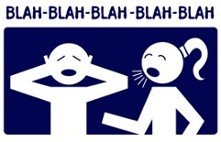
Feminist "Equality" Includes The Loss of Free Speech
Sheeple Fighting Back!
- Black Sheep - You Tube (2min)
- Symantec (SYMC - NASDAQ) Downgraded to "Sell"
- Problems With Norton Internet Security?
- Cypress CEO Responds to Nun's Urging a "Politically Correct" Board Make-Up
- Do You Believe Women Have the Right to Free Speech?
- Canadian Feminists Getting Worried?
- Seven Ways To Get Traffic Without Google
Not All Women Are Like That! (NAWALT)
Myths, Legends & Religions

You are not god. Learn to observe without judging.

- Cypress CEO Responds to Nun's Urging a 'Politically Correct' Board Make-up
- The Baby Bomb: How the Boomers were Used to Demolish a Culture
- Statement of Bill Wood to the Committee on Ways and Means
- Why Did Feminists Attack the Family? -- by Heretical Sex
- Political Correctness - The Revenge of Marxism -- by Baron Bodissey
- Are Americans Practicing Communism? (The Ten Planks of the Communist Manifesto)
"We can't expect the American People to jump from Capitalism to Communism, but we can assist their elected leaders in giving them small doses of Socialism, until they awaken one day to find that they have Communism." -- Nikita Krushchev

THE ANIMAL FARM REALITY OF "FEMINIST EQUALITY:"
"Differences [between men and women], including the products of social inequality, MAKE UNEQUAL TREATMENT NOT UNEQUAL AT ALL." -- Catharine MacKinnon, "Reflections on Sex Equality Under Law," Yale Law Journal, 1991
Blog Archive
-
▼
2005
(86)
-
▼
January
(15)
- EOTM: The Natural World
- EOTM: Creating the Future
- EOTM: The Environment
- EOTM: Zen and the Art of Motorcycle Maintenance
- EOTM: Visual Reality
- EOTM: Models of Man: Where To? ...From Here...
- EOTM: How the Women's Movement Taught Women to Hat...
- EOTM: Feminism Led to Masculine Rage
- EOTM: The War Against Men -- by David Shackleton
- EOTM: Feminism Exposed: Our blindness to feminine ...
- EOTM: The S.C.U.M. (Society for Cutting Up Men) Ma...
- EOTM: Understanding Myth & Legend: The Structure o...
- EOTM: Shocking! Simply Shocking!
- EOTM: Fw: more men bashing
- EOTM: Eschatology 101 - Reading List
-
▼
January
(15)

"Only an armed people can be the real bulwark of popular liberty." -- V.I. Lenin
Repeal the Canadian Gun Registry

"A system of licensing and registration is the perfect device to deny gun ownership to the bourgeoisie." -- V.I. Lenin
"We shall destroy you from within!" -- Nikita Krushchev, during the Kitchen Debate, 1959
"Self Made Man" - Sculpture by Bobbie Carlyle
Websites
The Demographic Trap
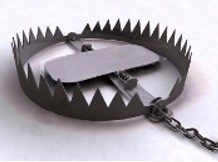
"Destroy the family, you destroy the country." -- V.I. Lenin
"America is like a healthy body and its resistance is threefold: its patriotism, its morality, and its spiritual life. If we can undermine these three areas, America will collapse from within." -- Josef Stalin
Back to the Bible
A Non-Bible Thumper Point of View
"The aim of socialism is not only to abolish the present division of mankind into smaller states and all-national isolation, not only to bring the nations closer to each other, but also to merge them." -- V.I. Lenin
No Thanks - We'd Rather Be Canadian!
Man-Made Global Warming is a Hoax being used to bring about Global Communism (Globalization)

"Every collectivist revolution rides in on a Trojan horse of 'emergency'. It was the tactic of Lenin, Hitler, and Mussolini. In the collectivist sweep over a dozen minor countries of Europe, it was the cry of men striving to get on horseback. And 'emergency' became the justification of the subsequent steps. This technique of creating emergency is the greatest achievement that demagoguery attains." -- Herbert Hoover
Beware the Cultural Marxism of Environmentalists
"The threat of environmental crisis will be the 'international disaster key' that will unlock the New World Order." -- Mikhail Gorbachev, quoted in "A Special Report: The Wildlands Project Unleashes Its War On Mankind", by Marilyn Brannan, Associate Editor, Monetary & Economic Review, 1996, p. 5

ABOLISH THE UNITED NATIONS
The Marxism of Multi-Culturalism
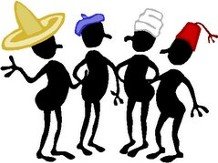
"Tolerance is how far a mechanical part can deviate from the norm before it screws up the entire machine." -- Any Mechanic
The Grinch That Steals Children's Souls

"Give us the child for 8 years and it will be Bolshevik forever." -- V.I. Lenin
"We must declare openly what is concealed, namely, the political function of the school...It is to construct communist society." -- V.I. Lenin
Extra, Extra!



"The oppressed are allowed once every few years to decide which particular representatives of the oppressing class are to represent them." -- Karl Marx
The Liberal Party of Canada = Cultural Marxist Agenda
- The Real Pierre Trudeau: Father of Canada's Permissive Society -- by Steve Jalsevac
- Pierre Elliot Trudeau - Cultural Marxist Wrapped In a Canadian Flag
- The Multi-Tasking Pink Proletariat
- The Right Dishonourable Paul Martin Wants Canadians to "Give Up A Little Of Our Sovereignty To Make The World Work." -- YouTube 2:38 (Maybe We Should Lock Him Up To Make Canada Work!)
Congratulations, Karl Marx!

Marxism Links (For Researching)
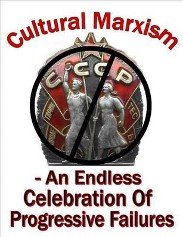
- A Brief Overview of Marxism: "Communist (Community) Oriented Policing" - by Phil Worts
- Antonio Gramsci - Collected Works, including the Prison Notebooks
- Antonio Gramsci's Life & His Marxist Theories Explained
- Communist Manifesto - by Karl Marx & Frederick Engels
- Herbert Marcuse Official Homepage
- Herbert Marcuse, Haters of
- Marxists Internet Archive
- The Conflict Tradition
- Women and Marxism
Rule by Science

Philosophy Corner
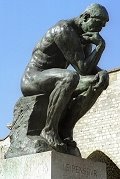
“Dialectical thought is related to vulgar thinking in the same way that a motion picture is related to a still photograph. The motion picture does not outlaw the still photograph but combines a series of them according to the laws of motion.” -- Leon Trotsky
Dialectical Thought is a Cornerstone of Marxism, and Feminism (Because They Are One In the Same)
The Marxist Dialectic's Zig-Zag
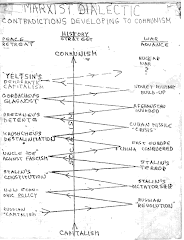
Wishing to advance in a room full of people, I do not walk through the aisle and straight toward my goal. Nor do I move slowly through the crowd shaking hands with friends and acquaintences, discussing points of interest, gradually nearing the objective. The dialectical pathway is different. It consists of a resolute forward advance followed by an abrubt turn and retreat. Having retreated a distance there is another turn and advance. Through a series of forwardbackward steps the goal is approached. To advance thus is to advance dialectically. The Communist goal is fixed and changeless, but their direction of advance reverses itself from time to time. They approach their goal by going directly away from it a considerable portion of the time. Lenin wrote the textbook, One Step Forward, Two Steps Back. Chinese Communist schoolchildren are taught to do the dialectical march taking three steps forward and two steps back. If we judge where the Communists are going by the direction in which they are moving we will obviously be deceived -- Dr. Fred Schwarz, President of Christian Anti-Communism Crusade
Critical Theory
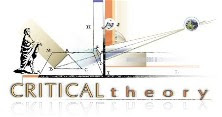
All's Fair In Love and War


The Matriarchy Lives! (Click Picture)

"I am most anxious to enlist everyone who can speak or write to join in checking this mad, wicked folly of 'Women's Rights', with all its attendant horrors, on which her poor feeble sex is bent, forgetting every sense of womanly feelings and propriety. Feminists ought to get a good whipping. Were woman to 'unsex' themselves by claiming equality with men, they would become the most hateful, heathen and disgusting of beings, and would surely perish without male protection." -- Queen Victoria, 1870


Please Give Manginas the Respect They Deserve: NONE!





